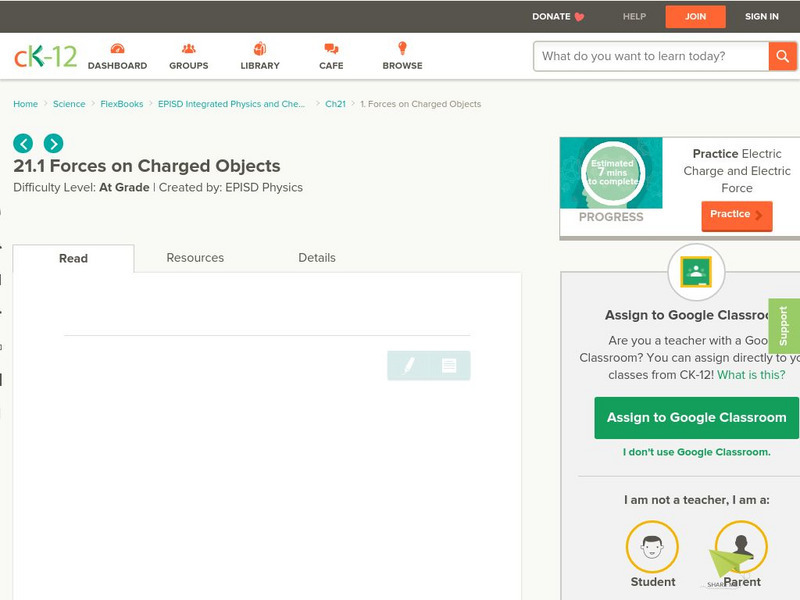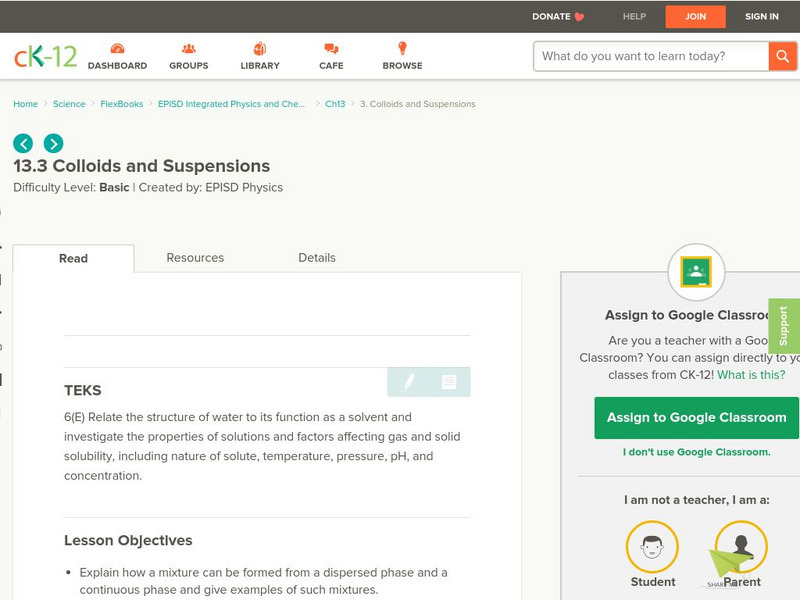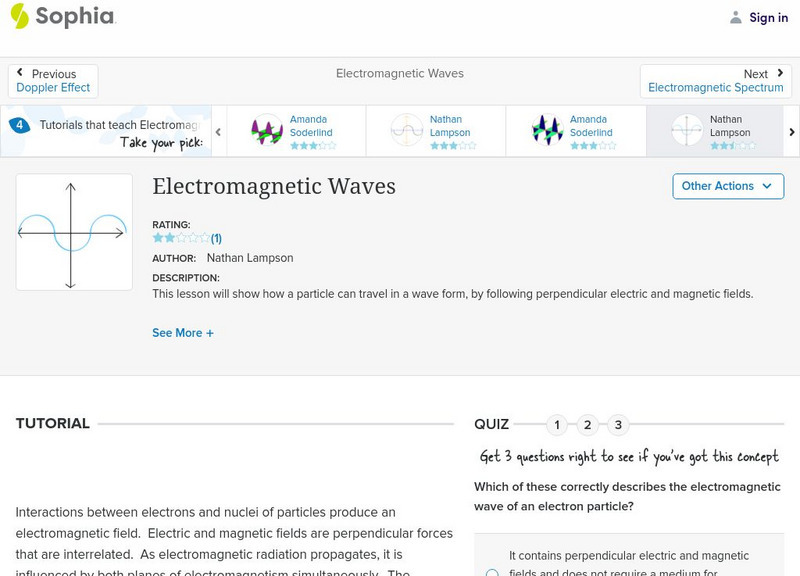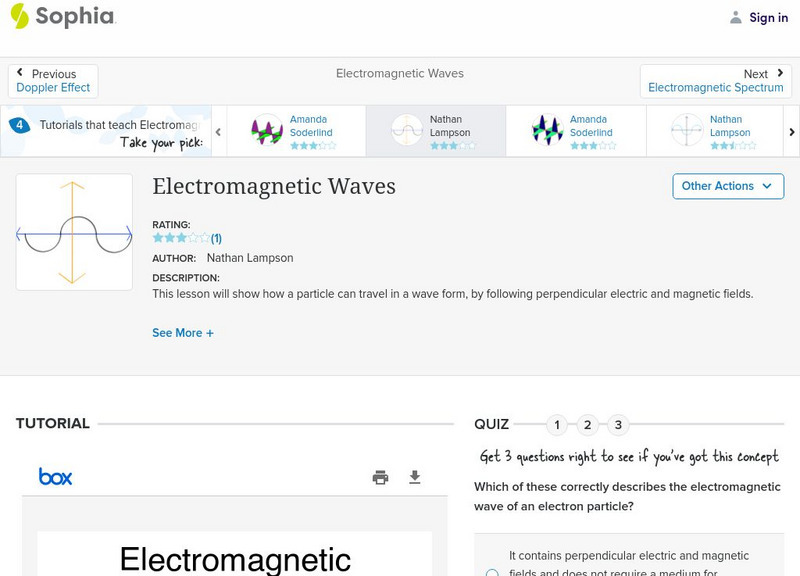Famous Scientists
Famous Scientists: Albert Einstein
Read a short biography about Albert Einstein, and find out how he discovered the general theory of relativity.
NASA
Nasa: Imagine the Universe: Gamma Rays From Supernovae and Supernova Remnants
Astronomers use gamma decay to study the lives of the stars.
Lawrence Berkeley National Laboratory
Berkeley Lab: Phases of Nuclear Matter
A brief explanation of determining the temperature and density at which the critical point of nuclear matter is located.
Massachusetts Institute of Technology
Mit: Inventor of the Week: Tim Berners Lee
Use this site to learn about the man who invented the World Wide Web, Tim Berners-Lee, and view links to further related information on this inventor and his invention.
Famous Scientists
Famous Scientists: Brian Cox
Learn about the life and work of English pop star-turned-physicist, Brian Cox.
Curated OER
Lancaster Particle Physics Package: Lhc
Learn what the Large Hadron Collider (LHC) is, when it was built, what it contains, and how it will help scientists better understand the universe by finding the Higgs field and solving the "mystery of antimatter." Includes very simple...
Curated OER
Lancaster Particle Physics Package: Lhc
Learn what the Large Hadron Collider (LHC) is, when it was built, what it contains, and how it will help scientists better understand the universe by finding the Higgs field and solving the "mystery of antimatter." Includes very simple...
Curated OER
Lancaster Particle Physics Package: Lhc
Learn what the Large Hadron Collider (LHC) is, when it was built, what it contains, and how it will help scientists better understand the universe by finding the Higgs field and solving the "mystery of antimatter." Includes very simple...
Curated OER
Lancaster Particle Physics Package: Lhc
Learn what the Large Hadron Collider (LHC) is, when it was built, what it contains, and how it will help scientists better understand the universe by finding the Higgs field and solving the "mystery of antimatter." Includes very simple...
Curated OER
Lancaster Particle Physics Package: Lhc
Learn what the Large Hadron Collider (LHC) is, when it was built, what it contains, and how it will help scientists better understand the universe by finding the Higgs field and solving the "mystery of antimatter." Includes very simple...
Curated OER
Lancaster Particle Physics Package: Detector
Details on ATLAS, one of the Large Hadron Collider experiments, and on the detection of Higgs decay.
Curated OER
Lancaster Particle Physics Package: Detector
Details on ATLAS, one of the Large Hadron Collider experiments, and on the detection of Higgs decay.
Curated OER
Lancaster Particle Physics Package: Detector
Details on ATLAS, one of the Large Hadron Collider experiments, and on the detection of Higgs decay.
Nobel Media AB
The Nobel Prize: Murray Gell Mann Biographical
This Nobel E-Museum contains a brief biography of nobel laureate Murray Gell-Mann, summarizing the various research positions he held through his career.
Wolfram Research
Wolfram Science World: Quantum Electrodynamics
In its description of quantum electrodynamics this definition provides the governing equations.
Other
Florida Intl Univ/hyperon and Kaon Online Literature
This resource presents an excellent bibliography of abstracts on research in hyperon and kaon particle physics. This resource is advanced science.
McGraw Hill
Mc Graw Hill Learning Center: Gas Laws and Kinetic Energy
From the companion web site for the Contemporary College Physics textbook. An ideal gas law simulation in which the motion of individual particles inside a closed container is simulated. The number of particles, external pressure, and...
CK-12 Foundation
Ck 12: Forces on Charged Objects
[Free Registration/Login may be required to access all resource tools.] Students learn which subatomic particles contribute to static electricity, and determine the charge of an object based on what particles it has gained or lost.
OpenStax
Open Stax: Conservation of Momentum
From a chapter on Linear Momentum and Collisions in a Physics textbook. This section of the chapter discusses the principle of conservation of momentum and the expression for it, along with examples. It then explains the role this...
CK-12 Foundation
Ck 12: Colloids and Suspensions
[Free Registration/Login may be required to access all resource tools.] In this lesson, students expand their study of mixtures to show that solids and gases can also act as solvents. Additionally, they take a look at situations in which...
CK-12 Foundation
Ck 12: Charging Objects
[Free Registration/Login may be required to access all resource tools.] The laws that govern interactions between charged particles are explained, and methods of creating a net charge on an object are described.
Other
Cern: The L3 Experiment
This is the home page of the L3 experiment at CERN. The basic detector description is easy to follow, but the physics is more advanced.
Sophia Learning
Sophia: Electromagnetic Waves: Lesson 2
This lesson will show how a particle can travel in a wave form, by following perpendicular electric and magnetic fields. It is 2 of 4 in the series titled "Electromagnetic Waves."
Sophia Learning
Sophia: Electromagnetic Waves: Lesson 3
This lesson will show how a particle can travel in a wave form, by following perpendicular electric and magnetic fields. It is 3 of 4 in the series titled "Electromagnetic Waves."












